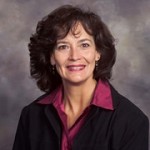
Roseanna G. Ross, is Professor and Chair of the Department of Communication Studies at a state university in Minnesota. She was Internship Director for the department for 18 years, and was Director of the Faculty Center for Teaching Excellence for 5 years. In addition, Roseanna currently serves as a campus mediator in the university mediation program. Roseanna’s professional publications include the development of a self-report instrument to assess communicative messages in conflict (Ross-DeWine CMMS). She is also co-author of two books: “The Internship As Partnership: a Handbook for Businesses, Nonprofits and Government Agencies,” and “The Internship as Partnership: A Handbook for Campus-Based Coordinators and Advisors.” As Senior Associate in the “Developing the Leadership of America’s Next Generation of Nonprofit Leaders” joint project of the National Society for Experiential Education, Regis University and the Center for Creative Leadership, Ross developed and facilitated a series of institutes for interns and mentors. Roseanna Ross is an energetic, creative presenter, trainer and storyteller, and experienced process consultant. As an independent communication consultant and trainer, Roseanna has over 30 years of experience in designing and facilitating seminars, assessing organizational communication needs, and providing keynote presentations for both the public and private sectors. Dr. Ross was a recipient of the National Society for Experiential Learning 2006 Pioneer in Experiential Learning Award and the 1999 Young Leader in Experiential Learning Award. Roseanna received the 1998 MnSCU Center for Teaching and Learning Star Leader Award. Ross has received teaching awards including the Central States Speech Association Outstanding Young Teacher Award and the Ohio University Department of Education Distinguished Alumni Award. She was also listed in Outstanding Young Women of America in 1985, and was honored as an International Women of the Year 1992-1993. Dr. Ross taught for a year in Japan 1991-1992. She was Director of the University’s Center for British Studies, Alnwick England, 1993-1994 and was Academic Director for that program in Summer 2006, and Summer 1996. Roseanna Ross earned a BS in education at Ohio University, and a Master of Arts in communication from Ohio State University and is a Doctor of Philosophy in communication theory, speech communication and higher education from Ohio University. |
Specialties:
|
Tag Archives: training
Nicholas Holton
Contact Information:Address: Email: Phone: Skype: NicholasHolton Website(s): Social Media Networks: Working Portfolio: |

Nicholas Holton has worked as a professional educator his whole career. First as a math instructor and now at a community college as an Associate Dean for General Education, Nicholas has been a leader in innovation by design. His workshops have visited four continents, and include strategic planning, appreciative inquiry, service learning, and engaged learning techniques. He is sought out as an invited speaker and his keynote and other presentations draw an international audience. Nicholas’ appreciative inquiry teams work with small nonprofits and whole community colleges. He conducted an Appreciative Inquiry Facilitator Workshop (AIFT) in Perth, Australia and his clients are located all over the world including: Scotland, Chile and India. His professional passions include anything that helps people improve the human condition. He is committed to this also in he personal life as he sits on several nonprofit boards and volunteers regularly at community events.
|
|
|
Presentations:
Appreciative Inquiry Summits:
Workshops:
Keynote:
Webinars:
International:
|
|
|
|
Linda Watkins
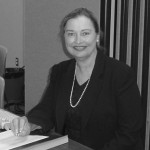
Linda Watkins has been associated with community colleges for 20 years. She currently serves as President of San Jacinto College South in Houston, Texas. Before becoming President, Linda taught on all levels from middle school through graduate school. She has served in various administrative roles, including department chair, dean, Vice President of Instruction, and Vice President of Student Services. Linda has been certified by Company of Experts.net as an Appreciate Inquiry Facilitator. She works with many local organizations in the areas of planning and organizational change. Linda holds a doctoral degree in Secondary and Higher Education, a masters degree in sociology, and a bachelor of arts in language studies. She works with groups to bring about change through systematic planning and by building upon the strengths of individuals and institutions. |
Specialties:
|
Jim Pulliam
Contact Information:Address: Email: Phone: Skype: jim_pulliam Website(s): Working Portfolio: |

My “walk” is no different from others nor the opportunities or achievements any greater. Spending time in the financial markets, teaching from the primary grades to graduate school, serving as a founding College President, Vice President of the Company of Experts and CEO of a software Company are professional experiences. Volunteer organizations range from holding professional statewide office, foundation boards, regional economic development board and serving as an appointee of a Governor on a BRAC Commission.
What have I learned? I have learned that our similarities are greater than our differences. Differences of people can be measured in millimeters not miles. It all depends on ones perspective.
I have also learned that destiny is up to us. One once said, “ it isn’t a journey but a quest”. A journey happens, a quest is something we thirst for.
What have I observed? I have observed that those making the greatest contribution for others are living lives of significance not necessarily one for their personal success.
What do I believe? I believe it is up to you, and you and me.
|
|
Macon Miracle:
World Appreciative Inquiry Conference (WAIC) 2012:
|
Handouts:Insert Handouts here… Presentations: |
|
|
| “Just a note to say how much I appreciate what you’re doing in the world and to let you know that AI continues to inform many aspects of all that I do.” ~ Susan Sanford, Certified AI Facilitator |
Kristen Crusoe

Dr. Kristen Crusoe is a Professor of Nursing, Psychiatric-Mental Health Nurse, and Appreciative Inquiry facilitator. Kristen is also an Organization Development practitioner specializing in Whole System Design through team-building, collaboration, communication, and relationship-based change. Kristen has roots in both Education and Healthcare and is successful leading change in both of these highly complex and turbulent arenas. She has experience as a facilitator, practitioner, teacher, department chair, manager, and director in healthcare organizations, community college, and university environments. The major focus of Kristen’s current practice includes using Appreciative Inquiry as a Change and Quality Improvement model for healthcare and education. She has lead initiatives for cultural excellence in healthcare and educational organizations including strategic planning, leadership development, quality improvement initiatives, and change management. Kristen is skilled in the art of appreciative reframing, leveraging opportunities, and collaborative relationship building. Kristen has a BA from Florida State University, a Master’s of Nursing from Oregon Health Sciences University, and a Doctor of Education from Oregon State University. She is a Certified Appreciative Inquiry Facilitator with the Company of Experts. She is also a Certified Dance Therapist and Yoga teacher. Kristen lives both on the Oregon Coast and in Pensacola, Florida. |
Specialties:
|
Sue Tsuda
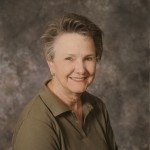
Sue Tsuda has experience in the complementary arenas of local government and community colleges. Sue has served in staff positions in local government ranging from intern to city manager in Oregon and California. She also has served as an appointed and as an elected official including city council. Her experience in education includes coordinating programs in CalWORKs, Workforce Development, Student Support Services, career and transfer planning, providing instruction in student success, life skills, workplace skills, career planning, tutor training, history, and government. She also is a successful grant writer. Land use planning and economic development are particular areas of interest. Ms. Tsuda has her Masters degree in Public Administration from California State University, Long Beach and a Bachelors degree in Political Science from California State University, Fullerton. She also has a certificate in Urban Planning from University of California Extension, at Irvine and post-graduate work toward another Masters Degree in Urban Planning at Cal-Poly, Pomona. Sue came into local government as a volunteer with the League of Women Voters and later went to work in the field she loves. Her greatest compensation is the opportunity to help others help themselves. The day she was hired as the first Town Manager of Yucca Valley, CA, the town experienced a 7.6 earthquake. The silver lining was the law that allows a fast track to formation of a Redevelopment Agency that is useful as an economic development tool. Ms. Tsuda’s career has provided broad experience in both local government and community college issues and opportunities. |
Specialties:
|
Diana Kelly
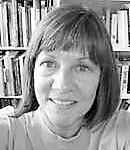
Diana K. Kelly has over 25 years of experience in higher education, providing faculty development seminars and workshops in the U.S., Ireland, England, and Germany. She has also made several keynote presentations for colleges and for international conferences on teaching and learning as well as lifelong learning. In her stimulating workshops and seminars, Diana models “best practice” by using active learning methods and by providing practical materials for participants to use in their teaching. She also facilitates an imaginative “visioning” process for strategic planning, including developing a campus strategy for teaching and learning. Diana Kelly has written chapters for two recent books on faculty development:
Diana Kelly earned her doctorate and master’s degree in Higher Education at the Claremont Graduate University. Her bachelor’s degree is in Communications (Broadcasting) from California State University, Fullerton. Before starting to teach at Fullerton College in 1980 she was a radio broadcaster at KWIZ radio in Santa Ana. As a graduate of Fullerton College (AA English), Diana Kelly is strongly committed to the mission of community colleges and understands the challenges of teaching and learning in community colleges. She worked in the California Community Colleges for 19 years, first as a full-time faculty member in Communications, then as a faculty developer, and finally as an Associate Dean of Continuing Education. Most recently Diana Kelly has spent six years in leadership roles in faculty development in two well-respected universities in Ireland: the Dublin Institute of Technology and Trinity College Dublin. Diana Kelly has returned to California, working as a full-time higher education consultant. |
Specialties:
|
Nancy Stetson
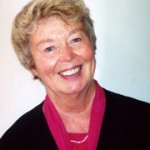
Nancy E. Stetson, Ed.D., was the founding president of Company of Experts.net (COE.net), a highly successful firm she founded in 1989 primarily to serve the professional and organizational needs of colleges, community colleges, schools and universities. She and her business partner, Charles R. Miller, sold the business to COE.net principals Jim Pulliam and Kathy Becker in 2005. While mostly retired, Nancy occasionally serves as an Expert on Call for COE.net. Since 1979, Nancy personally has provided hundreds of consulting, executive coaching, facilitating, keynoting, and training services to more than 125 organizations-corporations and businesses, educational organizations, governmental organizations, and non-profit organizations-and, within those organizations, to many groups and individuals. Nancy has made more than 100 presentations at international, national, and state conferences. She also has published dozens of professional articles and monographs. She is the co-author, with Miller, of Appreciative Inquiry in the Community College: Early Stories of Success, published in 2004 by the League for Innovation in the Community College; and author of Stories of Positive Change in the Community College: Appreciative Inquiry in Action, published in 2008 by Company of Experts.net. Her publications also include light verse, poetry and short stories, and she is currently seeking an agent for several “picture” books for preschoolers. While working as a part-time consultant, Nancy also worked full time from 1972-91 for several colleges, holding a variety of executive-level management positions including Vice President for Planning and Development and acting Vice President for Student Services. From 1991-97, she taught college courses full time. From 1997-2001, she taught many part-time undergraduate and doctoral-level courses in business, communications, education and leadership/management/supervision, face-to-face and online, at six different two and four-year public and private colleges and universities. She continues to be a Mentor/Assessor in Walden University’s Ph.D. in Education online program, specializing in Community College Leadership. Jane Magruder Watkins and Ralph Kelly of Appreciative Inquiry Unlimited trained Nancy as an Appreciative Inquiry practitioner. She holds a doctorate in higher education from Nova Southeastern University, and did post-doctoral work in higher education on classroom assessment at University of California at Berkeley with K. Patricia Cross and Thomas A. Angelo. Nancy earned a Master of Science degree in individualized studies/organizational behavior from Central Washington University, a Bachelor of Arts degree in writing and development from The Evergreen State College, and an Associate in Arts degree from Wenatchee Valley College. She also attended Swarthmore College for several years before taking a 13-year break in her education in order to be a full-time parent to her two daughters, Laurel and Nancy Lee. She is the proud grandmother of Laurel’s two sons, Connor and Brendan; and pays motherly and grandmotherly attention to some of her former husband’s children and grandchildren. Nancy’s honors and awards include:
|
Specialties:
|
Charles Miller
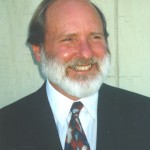
Charles R. Miller was a full-time member of the faculty at a northern California community college for 31 years, serving as an instructor, learning specialist and coordinator of faculty and staff development. He also served as adjunct faculty at the University of San Francisco and The Professional School of Psychology. Charles was the vice president of Company of Experts.net for ten years. He is now an Expert on Call with the same company, specializing in Appreciative Inquiry and the Enneagram. He has been certified by COE.net as an Appreciative Inquiry Facilitator and as an Appreciative Inquiry Facilitator Training (AIFT©) Trainer. Charles works as a consultant, facilitator, and trainer throughout the world. He was the national director of the Instructional Skills Workshop (ISW), a training program for college and university faculty. Miller has an extensive background in conducting workshops for faculty, staff, and colleges, including Active Learning, Appreciative Inquiry, Classroom Assessment, Collaborative Learning, Enneagram, Great Teaching Seminars, Instructional Skills Workshops, Presentation Skills Workshops, Relationship Training, Right to Succeed/Helping Students Succeed, Strategic Planning, and Student-Centered Instructional Principles & Practices©. His clients have included dozens of schools, community colleges, and four-year colleges and universities, including Concordia University in Montreal, Golden Gate University, Sonoma State University, and Samuel Merritt College. In 1995, Miller received the John Fry Individual Leadership Award from the National Council for Staff, Program and Organization Development. In 1996, he received the Lorraine Barry Individual Leadership Award from the California Community Colleges Council for Staff Development (4C/SD). Charles has completed the coursework in a doctoral program in clinical and organizational psychology at The Professional School of Psychology in San Francisco. He holds a master of arts degree in psychology from Sonoma State University, a master of arts degree in English from San Francisco State University, and studied at Rikkyo University in Tokyo, and Mexico City College. He holds a bachelor of science degree in marine engineering from the California Maritime Academy. Charles was trained as an Appreciative Inquiry practitioner by Jane Magruder Watkins and Ralph Kelly; and as an Executive Coach with an Appreciative Approach by Bill Bergquist and Kathleen O’Donnell. He is an Expert on Call with Company of Experts.net, co-Owner of Appreciative Inquiry Consulting (AIC), LLC, and a member of the Positive Change Corps. |
Specialties:
|
Chuck McIntyre
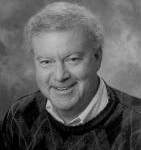 Chuck McIntyre of northern California, has consulted and worked in higher education planning, research, evaluation, finance and management since 1971. Until 1999, he worked as Director of Research and Analysis in a state office of higher education and has consulted with colleges across the U.S., in the United Kingdom and Canada since the early 1999s. His recent engagements have been in the areas of strategic and facilities planning, emphasizing enrollment forecasting, planning, and management – using computer simulation models, recently-released 2000 Census data, and other sources and tools. Chuck McIntyre of northern California, has consulted and worked in higher education planning, research, evaluation, finance and management since 1971. Until 1999, he worked as Director of Research and Analysis in a state office of higher education and has consulted with colleges across the U.S., in the United Kingdom and Canada since the early 1999s. His recent engagements have been in the areas of strategic and facilities planning, emphasizing enrollment forecasting, planning, and management – using computer simulation models, recently-released 2000 Census data, and other sources and tools.
ENROLLMENT FORECASTING, SIMULATION, AND MANAGEMENT Since the early 1990s, Chuck’s work has emphasized enrollment planning and management. In 1993, he developed an econometric model that is currently used in long-range enrollment forecasting for the capital planning at local districts in a state system. He conducted a study for the Maricopa Community Colleges in 1995 on the enrollment-impact of tuition and fees; results have been used by the district for long-range policymaking. Chuck then worked, in 1996, with Lincoln University on a computer model to simulate a variety of enrollment management initiatives in marketing, admissions, registration, and student retention, all designed to tie into budgeting models. Chuck also completed a 1997 study of Pima Community College’s past and future enrollment patterns for its use in planning. In Spring 1997, he was published in Jossey-Bass’ New Directions for Institutional Research, and has spoken on enrollment management at national conferences like the American Association for Community Colleges (SCUP), Association for Institutional Research (AIR), Society for Needs assessmentCollege and University Planning (SCUP), and the Consortium for Community College Development (CCCD). In Fall 1998, Chuck spoke at the European AIR in Spain about use of computer models to forecast enrollments and plan budgets. Also in 1998, he conducted an enrollment simulation and planning (ESP) study at Lansing Community College and, in 1999, he conducted ESP studies at Portland, Mt. Hood and Lane Community Colleges in Oregon and for the State Office of Michigan Community Colleges. In Fall 1999, AACC published Chuck’s book on Enrollment Simulation and Planning. Since then, Chuck has worked on ESP projects at colleges in Oregon, Michigan, Massachusetts, California, Washington, and Texas. STRATEGIC PLANNING Recent engagements by Chuck with Palm Desert and San Mateo (California) and Austin (Texas) Community Colleges have involved a form of strategic planning – learning-centered strategic planning – that emphasizes efforts by these institutions to concentrate in a variety of ways on student learning. Chuck spoke about this technique at a SCUP regional conference in 2002. Chuck’s work in college planning and evaluation spans nearly three decades, beginning in 1974 with an Exxon Education Foundation grant for research on the book Planning Colleges for the Community, published by Jossey-Bass. In 1978, he directed work, supported by a Vocational Education Act grant, on assessments of community educational needs; and in 1981, he was awarded a four-year Fund for Improvement of Postsecondary Education grant to develop new ways to tie college planning and evaluation to accreditation. Since then, Chuck helped develop several long-range plans for a state Board of Governors, has written a number of articles and monographs on college planning, and has directed numerous workshops and symposia on the topic using techniques such as Charrette, Delphi, Nominal Group Technique, and Total Quality Improvement. He has spoken frequently on planning at national and regional conferences like AACC, SCUP, AIR, Pacific Northwest Association for Institutional Research and Planning, Western and Southwestern Regional SCUP, Southeastern Association for Community College Research, California Community College Board of Governors, California AIR, Community College League of California, California Community College Trustees, and California Research and Planning Group, and at many local colleges. As Director of Research and Analysis, he was responsible for numerous state-level planning and evaluation projects, including environmental scanning and futures research projects, one of which was honored in 1996 with a Research White Paper grant from AACC and the Sloan Foundation, and published in Core Issues in Community Colleges (AACC, 1997). FACILITIES PLANNING During 2000, 2001 and 2002, Chuck conducted projects in long-range facilities planning for Mt. San Antonio (CA), Mt. Hood (OR), and Austin (TX) in preparation for capital financing bond elections. These projects involved computer modeling of facility needs, formulation of new space and utilization standards, and new kinds of classroom configurations. He currently is involved in a similar project for College of the Desert (CA) and has an article on the topic forthcoming in the Spring 2003 issue of the Journal of Applied Research in the Community College. Earlier, in 1990-91, Chuck designed and implemented a computer model to project 15-year facility needs for a state system of community colleges; the resulting Board of Governors’ Long-Range Capital Outlay Plan was used to plan and allocate capital outlays for nearly ten years. POLICY RESEARCH Over two decades, Chuck conducted and directed numerous policy research projects for a state office about community college transfer, tuition, fees and financial aid, student services and other topics. His article on transfer performance was published in Research in Higher Education in 1989. Other work includes policy research on such topics as the impact of fees on enrollment (1993), growth funding formulas (1996), and welfare reform (1997), among others. Also in 1997, Chuck completed four technical papers for the 2005 Task Force, a long-range planning effort about future college needs and funding, sponsored by a state Board of Governors and Chancellor. Chuck served on the Research Commission of the AACC between 1997 and 2000. COMPUTER MODELING For the past decade, Chuck also has engaged in many computer modeling projects, designing, developing and implementing planning and decision-support tools for colleges and universities. In 1989, he developed a computer model to forecast college faculty replacement, which was used in human resource planning and presented that year at SCUP. Between 1990 and 1995, Chuck directed a consortium of three dozen community colleges in the U.S., United Kingdom, and Canada in developing computer-aided planning (CAP) models. This work-involving model design, development, quarterly workshops with participants, and testing–was to produce robust and systematic computer simulation models to help colleges plan and make policy decisions. During the CAP project, Chuck held a 1993 planning symposium for staff from community colleges throughout England, Scotland, Wales and Ireland. Among colleges participating in the CAP project were Bilston in Birmingham (England), Lethbridge in Alberta (Canada), Kapiolani (Honolulu), and three-dozen other colleges from the mainland U.S. OTHER EXPERIENCE AND ACADEMIC TRAINING Earlier in his career, as Director of Analytical Studies with a state office of higher education, Chuck directed the design of the office’s first computer-based management information system and was responsible for the design and implementation of two financing systems by which the state office allocated funds to local districts. Chuck also has worked on projects assessing the economic impact of colleges, and in 2001 he helped AACC evaluate a new cost-benefit model for this purpose. Chuck’s academic training is in economics: PhD from University of California, MA from California State University; and in anthropology: BA from University of Colorado. He has taught undergraduate microeconomics and graduate higher education finance at the California State University. Prior to working in higher education, Chuck played professional baseball for the Milwaukee Braves organization. |
Specialties:
|


